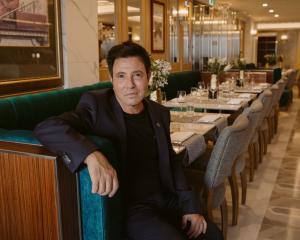
Peter Frost has had 40 years’ experience in clinical therapy. He is presenting a four-week programme in Mosgiel next month about managing health and wellbeing.
Mr Frost said the course introduced the idea of hierarchies when prioritising work, recreation and sleep.
"We tend to put work at the top of the list, then maybe we fit some recreation in and if we can we squeeze some sleep in after that.
"We’ve got it back to front."
He said the hierarchy should be flipped and sleep should be at the top of the list.
Mr Frost worked alongside the United Nations by moderating discussions between national leaders and helped settle political unrest in Sierra Leone.
His programme, Time to Live, was developed with help from University of Otago student health former director Peter Strang, department of education Associate Prof Jacques van der Meer and School of Surveying lecturers Dr Brian Coutts and Fraser Jopson.
More than 30 years ago, Mr Frost was asked by the university to deliver the programme to professional studies students training to become nurses, doctors and surveyors.
These professions typically faced high stress situations and had high rates of attrition, he said.
However, he realised the course was relevant to most people.
"Work was an aspect of it but what we were interested in was, ‘is this improving your relationships, how are you getting along with your kids, what’s your general health like, are you sleeping well?’."
He said the course went into detail about where stress came from, its biological effect on someone’s body and what could be done about it.
Human beings faced an unprecedented amount of pressure because of modern lifestyle technologies such as cellphones.
"[In the past], if it’s a crisis, you’ve got to run from a predator or chase down an antelope.
"It’s fine because you get to use the energy.
"But if [the pressure was coming from] your cellphone, then what?"
The autoimmune system was unable to keep up with the constant stressors produced by technology that previously did not exist and people ended up overcompensating through substance abuse to keep up, he said.
He called disconcerting trends of alcohol, marijuana and recently methamphetamine abuse compensating trends.
The free course would be open to all and is set to take place over four weeks starting September 13 at the Salvation Army building in Lanark St from 7pm to 9pm.












